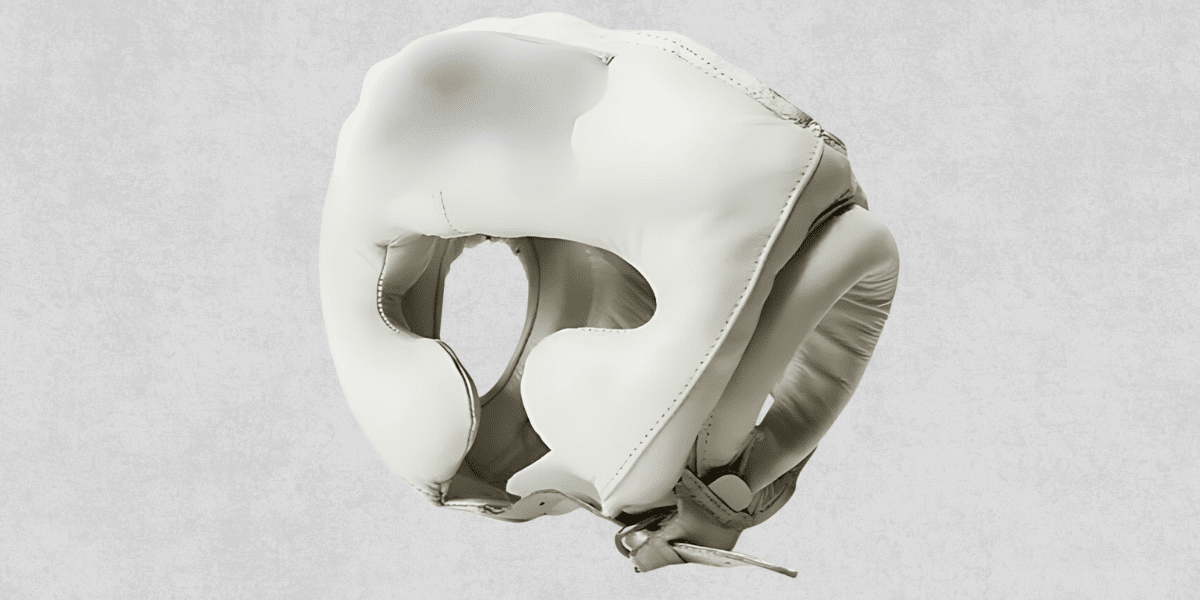By: Joah Faiello
Boxing headgear is meant to protect fighters during training and sparring, but many boxers find themselves frustrated with heavy, bulky designs. Far from offering just protection, heavy headgear introduces several challenges that can negatively impact a boxer’s performance and safety. From creating a false sense of security to disrupting natural movements and increasing the risk of concussions, the drawbacks of heavy headgear are significant. This article delves into the reasons why boxers hate heavy headgear and highlights innovative solutions that aim to enhance safety and performance in the ring.
False Sense of Security
Boxers often hate heavy headgear because it creates a false sense of security. While bulkier headgear might cushion blows better, it can make fighters feel overconfident, encouraging them to take risks they wouldn’t normally take. This false confidence can lead to more aggressive behavior, resulting in harder hits and increased vulnerability.

Disrupted Guard
Heavy headgear can disrupt a fighter’s guard by forcing their hands further from their face. Over time, this adjustment can create inaccurate muscle memory, resulting in a loose guard once the headgear is removed. This makes it harder for boxers to maintain a tight, effective guard, which is crucial for defense.
Larger Target
Boxers dislike the larger target that heavy headgear presents. The bulkier design requires more dramatic slips and rolls to avoid punches, which can disrupt a boxer’s natural movement and timing. This makes it harder to execute defensive maneuvers effectively, leading to frustration and decreased performance.
Psychological Effects
The psychological impact of heavy headgear is another reason why boxers hate it. Constantly switching between heavy and light headgear can make it difficult to adapt, affecting consistency and performance during sparring sessions. The added weight can slow down reaction times, making it harder to respond quickly to an opponent’s actions. Reduced head movement and increased fatigue can further affect a boxer’s speed and agility, which are critical components of effective boxing.

Increased Concussion Risk
Recent studies have shed light on the potential risks associated with heavier, bulkier headgear. Research indicates that such headgear may actually increase the risk of concussions rather than reduce it. The larger surface area makes it easier for opponents to land punches on the head, leading to more frequent and severe impacts. Additionally, the added weight can contribute to greater rotational forces during an impact, which is a critical factor in causing concussions. The false sense of security provided by heavily padded headgear can lead to more aggressive behavior and risk-taking, further elevating the likelihood of concussions.
Studies, including one by the International Boxing Association (AIBA), have shown that removing headgear led to a 43% reduction in concussions during bouts. This research suggests that boxers are more likely to sustain concussions when wearing headgear compared to when they are not.

Innovations in Boxing Headgear
One company at the forefront of revolutionizing boxing headgear is Hit N Move. Founded by Ozhan Akcakaya, Hit N Move introduced the Air Armor Precision headgear, a groundbreaking design featuring micro-padding technology. The Air Armor Precision headgear is the lightest and slimmest cheek guard headgear on the market, offering scientifically proven safety and enabling faster reactions. With rigorous testing at the Virginia Test Helmet Lab, the Precision Model combines lightweight form with a sleek structure, enhancing agility and freedom while maintaining protection. This commitment to quality and innovation sets new standards in boxing safety.
Final Thoughts
In conclusion, boxers often hate heavy headgear due to its false sense of security, disruption of guard, creation of a larger target, psychological impacts, and increased risk of concussions. Lighter, more streamlined headgear offers a promising solution by enhancing agility and reducing the risk of concussions without compromising protection. As research continues to highlight the potential risks of heavier headgear, innovations in design and technology are crucial for the future of boxing safety.
Published by: Khy Talara


















